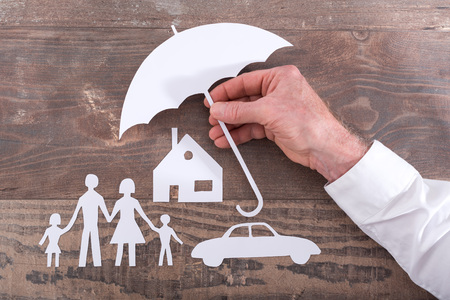If I asked you to list the components of a personal financial plan, what topics come to mind?
Many people would cite investment management, estate planning, budgeting, life insurance, and tax planning and certainly these are all essential considerations in crafting a comprehensive financial plan. Umbrella insurance may not have made your short list, but it should be considered a key component of any financial planning.
What is it?
Umbrella insurance is personal liability insurance. It is called umbrella insurance because it protects you over-and-above the liability insurance limits that are part of your homeowner’s and auto insurance policies. Umbrella insurance also provides coverage in some situations for which you are not protected under home and auto policies. It can pay for legal fees to defend you against personal injury or property damage claims. It may also cover you against claims of false arrest, libel, and slander, and claims that you might face as a landlord. Be sure to consult your policy for specific coverages and ask your agent if you are concerned about coverage for a specific risk.
Why do I need it?
According to a 2012 Forbes Magazine article, liability coverage in home and auto policies is usually capped at $500,000 or less. The same article states that 13% of personal injury awards and settlements are for $1 million or more. Considering the rising cost of medical care, it is easy to imagine an injured party racking up medical bills in excess of the $300k-$500k coverage level afforded by your auto policy. If you lack additional liability insurance coverage, the consequences of a personal injury settlement could be devastating to your financial future.
How much coverage do I need?
Umbrella insurance is usually sold in increments of $1 million. The right amount of umbrella coverage depends on your lifestyle, profession, and net worth. Insurance agents typically recommend umbrella coverage in an amount equal to your current net worth or more. Keep in mind that an umbrella policy not only protects your existing assets, but can protect against garnishment claims on future earnings/inheritances. For this reason, umbrella insurance should be a consideration even if you don’t currently have substantial assets.
You will want to consider a higher coverage level if you have a risk such as a swimming pool, trampoline, or tennis court, if you have children at home, or if you entertain frequently. If you own rental property or occasionally rent out your vacation property, make sure that it can be covered under your umbrella policy and consider increasing the amount of coverage. Likewise, if you have a recreational vehicle such as an ATV or boat, check with your insurance agent. As with all insurance products, you will want to review your coverage level periodically to make sure it is in line with your current lifestyle and net worth.
How much does it cost?
An umbrella insurance policy may cost a lot less than you think since liability coverage under your umbrella policy only kicks in once the limit of your homeowner’s or auto policy is reached. Most insurers will require you to have $300k to $500k in liability coverage on your home and car. The liability coverage afforded by the umbrella policy is in addition to the amount of coverage on these underlying policies. Expect to pay as little as $250 to $500 a year for a $1 million to $2 million policy which covers 1 home, 2 cars and 2 drivers. Contact your insurance agent to obtain quotes. You will often pay a lower premium if you have all of your policies with one insurer. If you think your cash flow can’t support the additional premium, consider increasing your home and auto deductibles to reduce premiums there.
Umbrella insurance can be an inexpensive and important addition to your personal financial plan. You may consider your risk of a dog bite or trampoline accident claim to be very small, but don’t let such an incident derail your carefully planned and executed financial plan.

